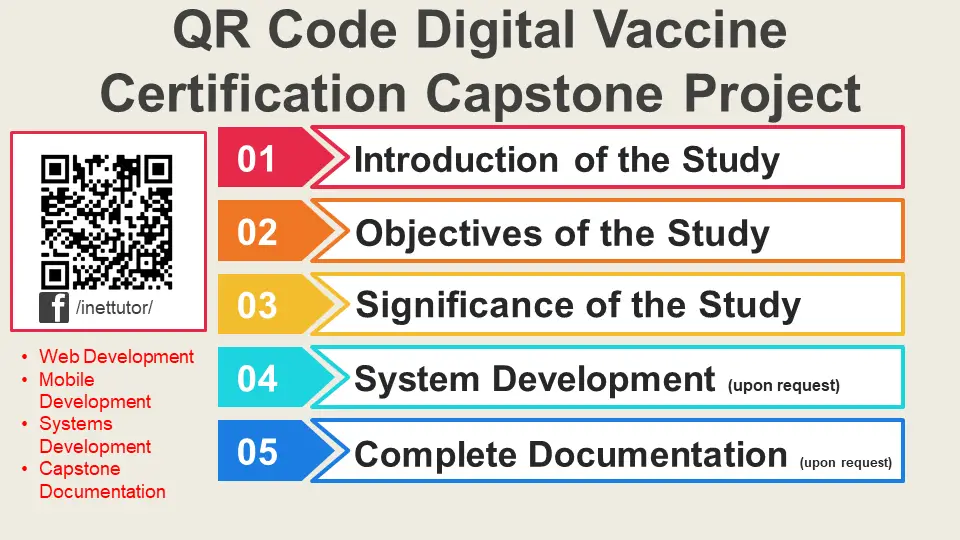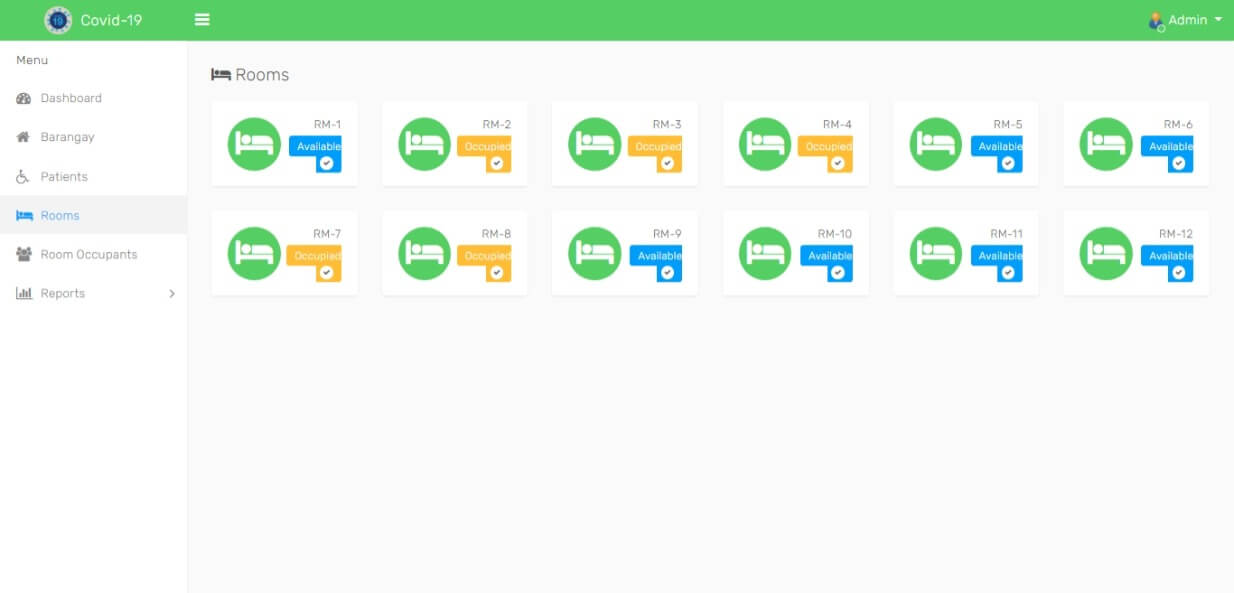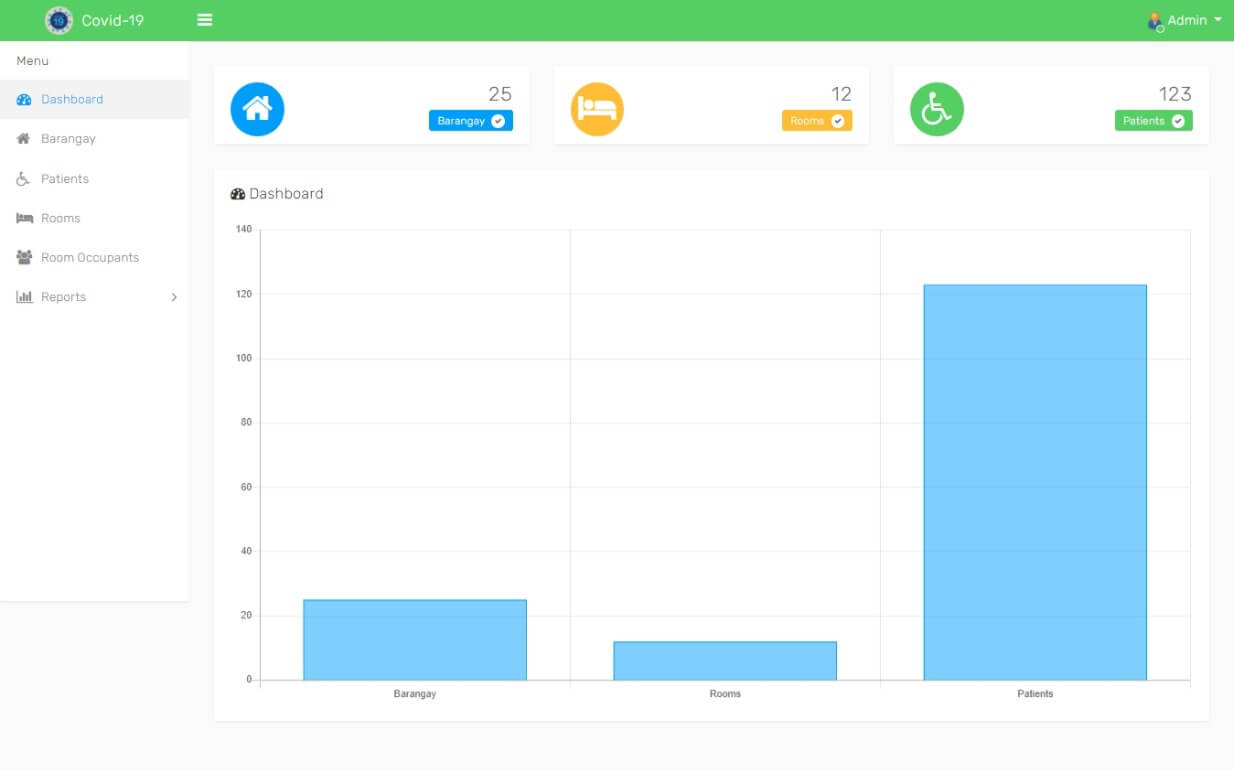QR Code Digital Vaccine Certification Capstone Project
Abstract
Table of Contents
The Corona Virus Disease 2019 (COVID-19) is a global pandemic that causes severe acute respiratory illness. The pandemic began in December 2019 and is currently ongoing, claiming thousands of lives and disrupting the global economy. The COVID-19 pandemic presented a challenge to the government and the healthcare industry in terms of combating and mitigating the virus’s spread, as it is a highly contagious disease.
The rapid development of COVID-19 vaccines is one method that has come to light to combat the COVID-19 pandemic. As COVID-19 vaccine administration is ongoing, the government faces a hurdle in monitoring and identifying vaccinated individuals as a result of the vaccination process. Individuals who have been vaccinated currently receive a paper-based vaccination card or certificate which may serve as their passes in entering some places or for any purpose it may serve. The current method is quite inefficient and is prone to a lot of issues and errors. There is a need for an innovative way on how to issue vaccine cards or certificates that are highly reliable and valid.
For the aforementioned issues, the study’s researchers have offered an IT-based solution. The researchers want to create a digital vaccine certification system that is based on QR codes. The system will phase out paper vaccination cards to a computerized version with QR codes.
With the implementation of the QR Code-based vaccine certificate, issues on the reliability and validity of vaccine cards will be eliminated. The system will keep all of the vaccine recipient’s information, including their identity, vaccine brand, where it was administered, and other vital details, in a centralized government database. The system will then generate a QR-Code for each person who has taken the vaccine, which they may use for whatever purpose they need it for, such as a travel pass or a work permit in another country.

Introduction
The COVID-19 pandemic imposes various challenges to the government and healthcare sector. Information technology has played a vital role in helping to combat the COVID-19 pandemic. The capstone project, entitled “QR Code Digital Vaccine Certification” is designed to transform the paper-based COVID-19 vaccine cards. The vaccination details of the recipients will be stored digitally and the system will generate a QR Code which is ready for scanning if the recipients needed it for a pass. The digital vaccine certificate will make it easier for the government to monitor and identify individuals who are already vaccinated.
The rapid development of COVID-19 vaccines is one method that has come to light to combat the COVID-19 pandemic. Vaccines have been produced by several companies and are expected to be administered to the general public. The vaccines have undergone a series of clinical trials to ensure their safety and efficacy in combating the coronavirus. SINOVAC, Pfizer, and Moderna are some of the authorized vaccines that are now in use and administered to the public. The government faces a hurdle in monitoring and identifying vaccinated individuals as a result of the vaccination process. Individuals who have been vaccinated currently receive a paper-based vaccination card or certificate which may serve as their passes in entering some places or for any purpose it may serve. This method challenges the government to accurately monitor and identify individuals who are already vaccinated. It is also quite risky The paper-based vaccine certificates are not highly reliable to be valid for some may tamper or print cards on their own. Vaccine cards or certificates made of paper might also be easily misplaced by the cardholder. There is a need for an innovative way on how to issue vaccine cards or certificates that are highly reliable and valid.
Proposed Solution
In conjunction with the above-mentioned concerns, the researchers proposed the development of the QR-Code-based Digital Vaccine Certificate. The system will phase out paper vaccination cards to a computerized version with QR codes. The digital vaccine certificate the issues on reliability and validity of vaccine cards will be eliminated. The system will keep all of the vaccine recipient’s information, including their identity, vaccine brand, where it was administered, and other vital details, in a centralized government database. The system will then generate a QR-Code for each person who has taken the vaccine, which they may use for whatever purpose they need it for, such as a travel pass or a work permit in another country. By this means, the government can accurately monitor and identify fully vaccinated individuals.

Objectives of the Study
General Objective- The main goal of the project is to implement a QR Code-based Digital Vaccine card or certificate as proof of being fully vaccinated.
Specifically, the researchers aim to:
- To digitally transform COVID-19 vaccine cards or certificates.
- To design a system that will be used to electronically record vaccination details of vaccine recipients.
- To deposit vaccine details in a centralized database.
- To design and generate QR-code-based certificates for individuals who are fully vaccinated.
- To develop a system that will allow the government to accurately monitor and identify vaccinated individuals.
- To ensure high reliability and validity of vaccine cards and certificates.
- To evaluate the system in terms of user acceptability, effectiveness, quality, productivity, and reliability.
Scope of the Study
The researchers mainly focus on digitally transforming issued COVID-19 vaccine cards. This is to eliminate issues and concerns encountered in the paper-based vaccine cards or certificates. The proposed vaccine card system will boost the reliability and validity of the cards. The researchers will gather a sample size of vaccine cards issuer and vaccine recipients to participate as respondents of the study.
Significance of the Study
The success of the project is significant for the following individuals or groups:
Government. The success of the system will assist them to accurately count the numbers of vaccinated individuals. The system will streamline the process of monitoring and identifying
Vaccine Card Issuer. The system will ease up their manual workload and will eliminate paper works involved in issuing vaccine cards.
Vaccine Recipients. The digital vaccine cards will be convenient for them. Losing the paper-based vaccine card will be avoided. The fully vaccinated individual will only use the QR-code whenever they need the vaccine certificate as a pass or for whatever purpose it may serve.
Researchers. The success of the project will give them credits by helping and providing the healthcare sector with an efficient system to combat the spread of the COVID-19.
Future Researchers. The system will serve as their reference in conducting their study and developing their version of the system.
Conclusion
The Corona Virus Disease 2019 (COVID-19) is a global pandemic that causes severe acute respiratory illness. The pandemic began in December 2019 and is currently ongoing, claiming thousands of lives and disrupting the global economy. To reduce the number of severely affected individuals and death cases COVID-19 vaccines are developed. The rapid development of COVID-19 vaccines is one method that has come to light to combat the COVID-19 pandemic. As COVID-19 vaccine administration is ongoing, the government faces a hurdle in monitoring and identifying vaccinated individuals as a result of the vaccination process. This study was conducted to develop a QR-Code based digital vaccine certificate or card. The result of the study showed that the developed system is efficient and highly reliable.
Hence, the researchers concluded that the developed system will transform the paper-based COVID-19 vaccine cards. The vaccination details of the recipients will be stored digitally and the system will generate a QR Code which is ready for scanning if the recipients needed it for a pass. The digital vaccine certificate will make it easier for the government to monitor and identify individuals who are already vaccinated.

Recommendations
The significant result of the study prompted the researchers to strongly recommend the implementation of the system. The system is highly recommended for its efficiency and reliability that can be rendered to the intended users. The researchers also highlight the importance of having enough knowledge on how to operate the system for the end-users to properly utilize it.
The following are the specific recommendations of the researchers:
- The government should adopt and implement the use of the system for them to accurately monitor and identify fully vaccinated individuals.
- The implementation of the system is highly recommended for it will increase and ensure the reliability and validity of vaccination cards presented by the people.
- The system is recommended for its effectiveness, quality, productivity, and reliability.
You may visit our Facebook page for more information, inquiries, and comments.
Hire our team to do the project.


